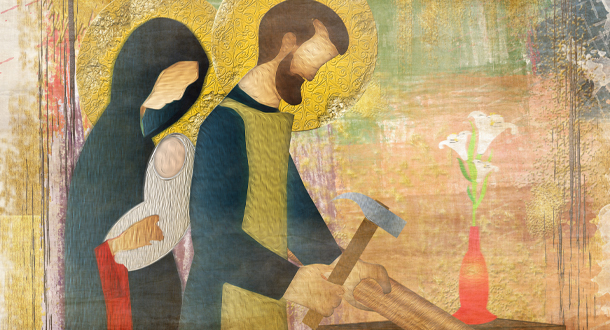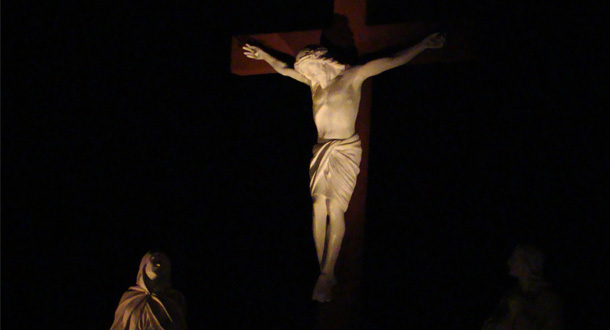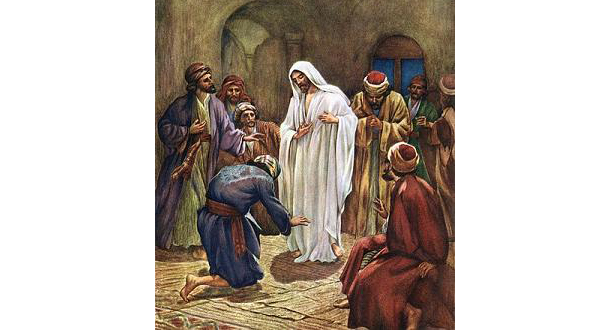
Memorial of St. Joseph the Worker
Scripture:
Genesis 1:26b-2:3
Matthew 13:54-58
Reflection:
Where did he get such wisdom and mighty deeds? Is he not the carpenter’s son?
Jesus’ neighbors were puzzled and upset that this man from their town, who grew up there, spoke with such authority and wisdom in their synagogue. To them, he was just a carpenter’s son, not a student at some rabbinical school.
Joseph the carpenter took his responsibility seriously, along with Mary, to raise Jesus. Joseph never speaks in the Gospels, but we learn so much from his actions. When God needed him, when Mary needed him, when the young Jesus needed him, Joseph was present. He was the family’s guardian, protector and provider.
Back then, sons usually followed in their father’s trade, so Joseph would become Jesus’ teacher, too. We assume Jesus learned a trade because in the same synagogue scene in Mark’s Gospel (6:3), the Nazarenes call Jesus the carpenter. Joseph taught Jesus wood working and stone masonry, and they likely traveled the region together for work.
St. Joseph the Worker teaches us the same lessons he taught the young Jesus. Work is dignified and an intrinsic good. No matter the trade or role, the worker must always be respected and valued. Through the development of our talents and abilities we strengthen our families and communities. When we work, we share in God’s creativity of bring God’s kingdom here on earth.
Today, on the feast of St. Joseph the Worker and the day dedicated to workers, let us pray for all workers, so that no one might be without work and all might be paid a just wage. May they benefit from the dignity of work and the beauty of rest. –Pope Francis
Mike Owens is coordinator of the Passionist Alumni Association and a member of the Migration Commission of Holy Cross Province. He lives in Louisville, Kentucky.







